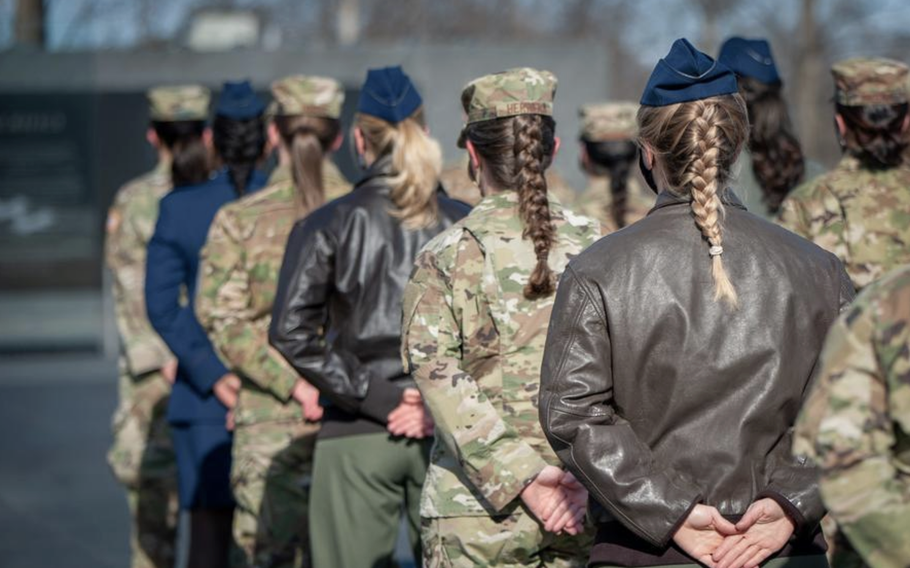
A federal watchdog’s investigation found the Department of Veterans Affairs has had problems retaining skilled processors to handle disability claims for military sexual trauma and addressing errors in processing claims, such as failing to collect all records pertinent to the review. (U.S. Air Force)
WASHINGTON — Overlooked evidence, incomplete records and a failure to order necessary medical exams have hampered claims for military sexual trauma at the Department of Veterans Affairs, according to a new federal watchdog report that also found a high turnover rate among processors.
An investigation by the VA’s Office of Inspector General released Wednesday examined the VA’s Military Sexual Trauma Operations Center that opened in 2022 and employs a specialized team to review disability claims connected to sexual assault and sexual harassment in the military.
The VA reported receiving 57,400 claims for military sexual trauma in fiscal 2024, up 18% from the previous year.
But auditors found the operations center has challenges retaining experienced employees to review the complex medical claims and addressing errors in the review process that resulted in claims incorrectly denied, according to the report.
The turnover rate for claims processors for military sexual trauma was nearly 25% in fiscal 2024, compared to less than 10% for employees processing other types of claims, the inspector general said.
Between October 2023 and January 2024, a review of completed claims showed an error rate of more than 50%, the inspector general said.
“Some of these errors included insufficient development — such as failing to obtain all records, insufficient medical opinions due to missed evidence, and failure to order a medical exam, when necessary,” according to the findings. “Given the sensitive and complex nature of these cases, it is critical that military sexual trauma claims are handled in a fair, accurate and compassionate manner by claims processors who have expertise in these types of claims.”
About one in three women and one in 50 men report they have experienced military sexual trauma when screened by their VA clinician, according to the VA.
The VA has a “two-signature” process that requires an experienced processor to check the claims processed by a trainee, according to the report.
But up to 1/3 of denied claims reviewed by the inspector general still “contained an error” after an evaluator had reviewed them for accuracy.
An example of an error in claims processing involved a veteran’s submission for disability compensation based on post-traumatic stress disorder from military sexual trauma, according to the report. The veteran’s VA medical records showed mental health treatment and a diagnosis of PTSD, a mental health condition that can develop from witnessing traumatic events. The veteran’s military records indicated “potential indicators of sexual trauma” during military service.
The claim was denied for insufficient evidence when the processor should have requested a medical exam to collect more evidence before making a final determination, the report said.
Auditors said since the Military Sexual Trauma Operations Center opened three years ago, it has experienced “a significant increase in the MST claims inventory,” which has posed challenges for recruiting and retaining skilled employees.
The increase followed an outreach campaign to raise awareness of benefits and services available for veterans who had experienced military sexual trauma, the inspector general said.